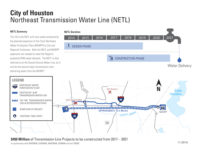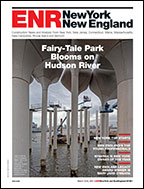A commission to delve into the future of the nation’s highways and transit systems—and how to fund them-—is ready to start its daunting job. In last year’s SAFETEA-LU statute, Congress set up the National Surface Transportation Policy and Revenue Study Commission and directed it to produce a report by July 1, 2007.
The 12-member commission slated its first meeting for May 24, and plans several more in a race against its tight deadline. The panel chairman, Transportation Secretary Norman Mineta, on May 17 named Quintin C. Kendall as the commission’s executive director. Kendall has been deputy assistant transportation secretary for management and budget since April 2005.
The panel is to probe ways to find revenue for the Highway Trust Fund and develop a consensus for the shape of successors to SAFETEA-LU, the Safe, Accountable, Flexible, Efficient Transportation Equity Act, a Legacy for Users. The panel “is intended to produce politically viable revenue raisers for the trust fund,” says Graham Hill, staff director for a key House subcommittee.
Tight money made it hard to strike a deal on SAFETEA-LU among lawmakers from competing “donor” and “donee” states. Donors, whose fuel tax payments exceed highway aid they receive, and donees, who are in the opposite situation, surely will seek higher spending in the next transportation bill. The big question is where the new money will come from to cover those increases.
Hill told a May 17 Transportation Construction Coalition meeting that the future of the trust fund, the mechanism that drives financing to maintain and improve road and transit networks, is uncertain. He notes that although the fund is predicted to stay solvent through 2009, its balance is expected to turn negative by 2010, the year after SAFETEA-LU lapses. Hill says that means lawmakers who draw up the next big authorization bill “are going to start their baseline year with a shortfall in revenue.”
Jack Schenendorf, a member of the new panel, says, “Hopefully, the commission will come up with some recommendations at the end of the day and try to force consensus on what the appropriate way to proceed on the next reauthorization is.”


